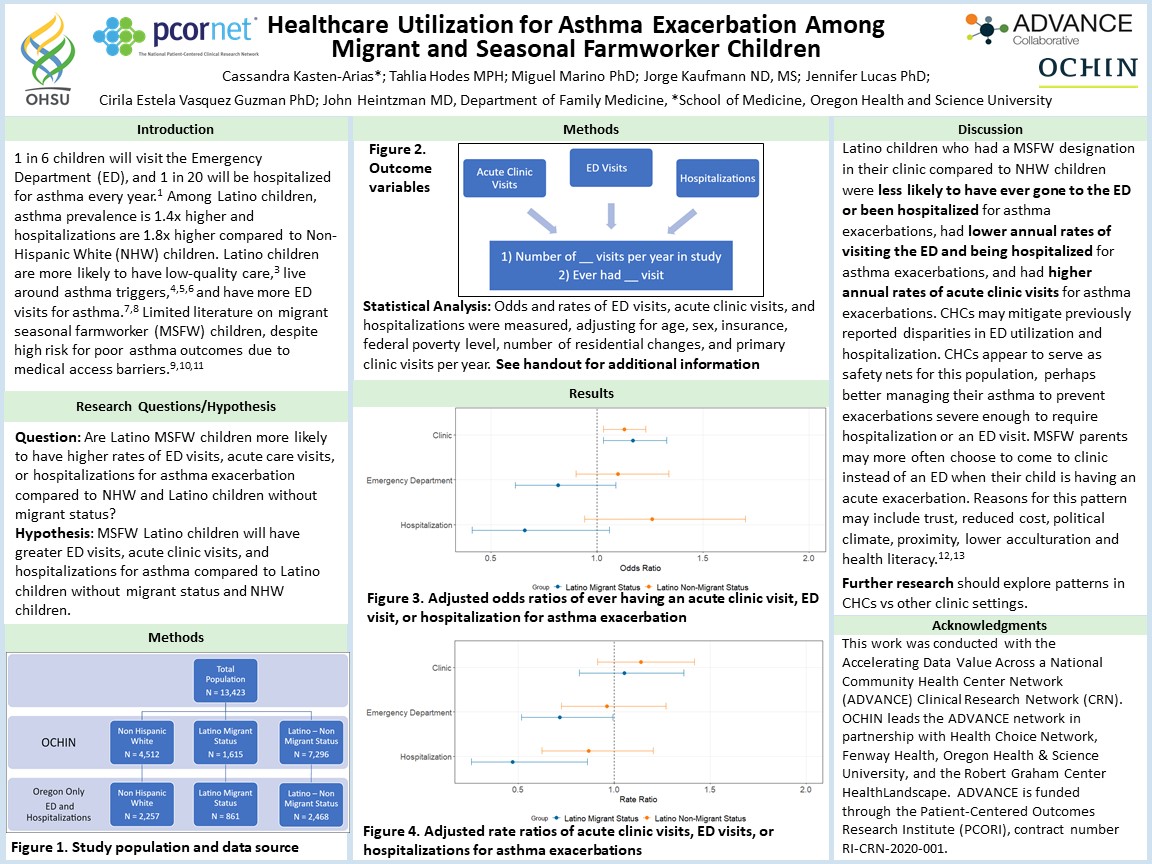SRFP052: Healthcare Utilization for Asthma Exacerbations among Migrant and Seasonal Farmworker Latino Children
Cassandra Kasten-Arias; Tahlia Hodes, MPH; Cirila Estela Vasquez Guzman, PhD; Jennifer Lucas, PhD; Jorge Kaufmann, MS; Miguel Marino, PhD; John Heintzman, MD, MPH

Jack Westfall
jwestfall@aafp.org 11/21/2021Terrific project. Great poster and abstract. Thanks for sharing at NAPCRG